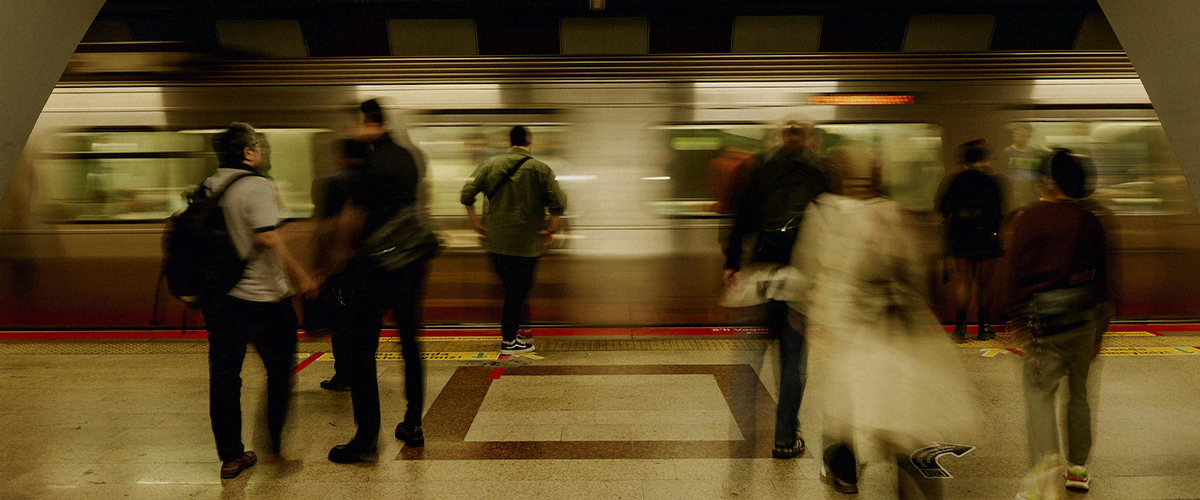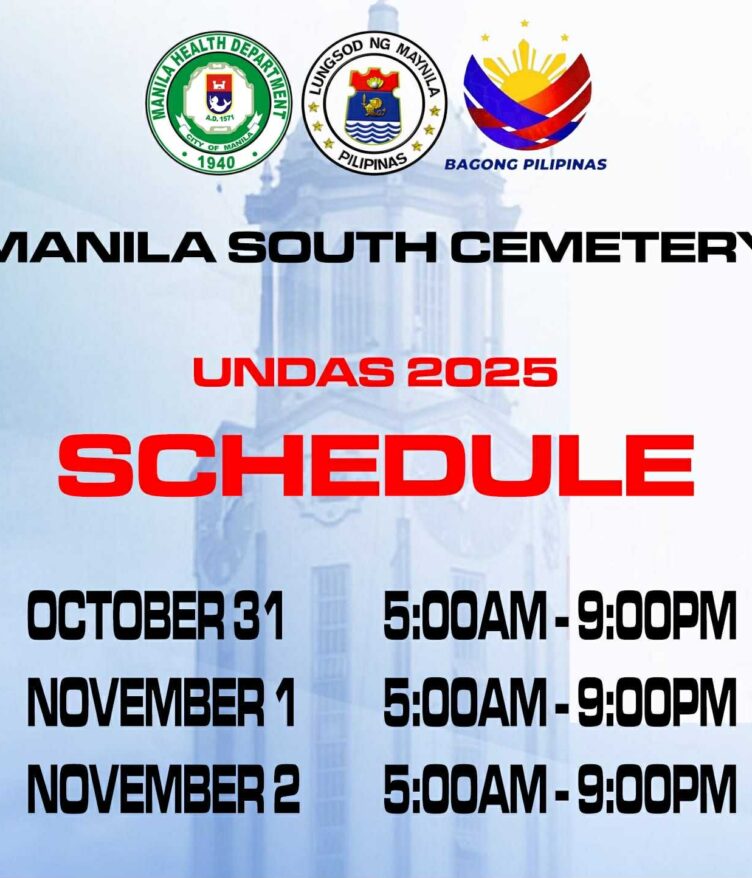IN a world that often equates productivity with worth, where the relentless chase for success can overshadow mental health well-being, a subtle yet profound counter-movement is emerging: the art of living slowly.
It is an ethos that is gaining traction not just among retired professionals, but also in a place that is often overlooked in such discussions – the youth.
The fast-paced reality
The Philippines has long been considered one of the most workaholic countries in Southeast Asia. According to the Global Life-Work Balance Index 2024 by the human resource platform Remote, the Philippines ranked second to last, scoring 27.46 out of 100.
The index, which compared data from the top 60 gross domestic product (GDP) countries, highlighted the overwhelming work culture prevalent in the nation.
Filipino workers clock an average of 40.63 hours a week, leaving them with only 15.87 hours every weekday for leisure or rest. This stark reality points to the deeply ingrained culture of overwork that has defined the Filipino workforce for decades.
While older generations have traditionally borne the brunt of this workaholic culture, Generation Z is increasingly feeling the strain. The digital age has introduced an “always-on” work culture, where boundaries between work and personal life are blurred. For many young Filipinos, especially those new to the workforce, the pressure to succeed in a competitive environment is intense.
According to the Deloitte Global Gen Z and Millennial Survey in 2023, 46% of Gen Z respondents reported feeling stressed or anxious most of the time due to heavy workloads, the constant need to prove themselves, and societal pressures.
Many young Filipinos are trying to keep up with the demands of their careers, while simultaneously managing the expectations set by a fast-paced, hyperconnected world.
This has led to rising cases of burnout among the youth, prompting a call for a lifestyle change that doesn’t compromise well-being.
A growing desire for a slower pace of life
Despite the pervasive culture of overwork, more Filipinos, particularly younger generations, are expressing a desire for a slower, more intentional way of living. According to the 2023 IPSOS Global Trends Report, 70% of Filipinos wish they could slow down the pace of their life, driven by a need for improved mental health, stronger relationships, and greater personal fulfillment.
The pandemic also played a significant role in this growth. With lockdowns forcing people to slow down and reevaluate their priorities, many Filipinos began to question the sustainability of their fast-paced, work-centered lives.
As a result, more young people are now actively seeking ways to incorporate balance and well-being into their daily routines, whether through hobbies, personal growth, or simply spending time with loved ones.
A 2024 Deloitte study reveals that 70% of Gen Zs in the Philippines are facing burnout due to their heavy workloads. Even more concerning, these figures are significantly higher than the global average of 45%, indicating that most young professionals in the country are disproportionately affected.
But what if the key to fulfillment lies not in adding more to our lives, but in intentionally doing less?
Defining the art of living slow
At its core, living slowly is not about moving sluggishly or letting go of ambition. Instead, it is about rethinking the pace and purpose behind our actions. It is about being present in each moment, prioritizing meaningful connections, and embracing simplicity.
For young Filipinos, this might look like unplugging from social media for a day to focus on hobbies, setting clearer boundaries between work and rest, or choosing quality over quantity in relationships and commitments.
The slow living movement intersects with mindfulness, minimalism, and intentionality, but it’s not just a trend—it’s a philosophy that encourages a deeper engagement with life.
It’s about savoring what you have, cultivating gratitude, and making space for joy. In a culture that often values grand achievements, this mindset offers a refreshing reminder: a slower pace doesn’t mean losing momentum. It means aligning life’s rhythm to what truly matters.
Slowing down without sacrificing ambition
One of the biggest misconceptions about slow living is that it’s incompatible with ambition—that by choosing to slow down, you’re giving up the drive to succeed. But this couldn’t be further from the truth. In fact, slowing down can help fuel your ambitions in a more sustainable, fulfilling way.
It’s not about abandoning goals but approaching them with a more thoughtful, deliberate mindset. For young Filipinos who are navigating both personal and professional aspirations, slow living can offer a pathway to success that doesn’t come at the cost of well-being.
At its core, slowing down means focusing on quality over quantity. It’s about working smarter, not harder. When you remove unnecessary distractions and pressure, you gain the clarity needed to direct your energy where it counts.
Take college students, for instance. Many feel the constant need to overachieve, juggling internships, extracurriculars, and academic requirements. However, by embracing slow living principles, students can prioritize tasks that align with their values and long-term goals, resulting in more intentional work and less burnout.
Practical ways to adopt slow living
Here are some actionable strategies for young Filipinos to embrace slow living while staying aligned with their goals:
- Prioritize mindful breaks: Instead of scrolling through your phone between tasks, try incorporating short, mindful activities like stretching, taking a walk, or deep breathing. These small pauses can refresh your mind and enhance productivity.
- Set clear boundaries: Whether in school or at work, make it a habit to delineate time for work, rest, and leisure. Use tools like time-blocking to create a structure that respects your need for balance.
- Practice digital minimalism: Reduce time on social media by setting daily limits. Being selective about your online consumption helps reduce mental clutter and makes space for more enriching activities.
- Embrace the power of ‘no’: Learning to say no isn’t just about avoiding stress—it’s about saying yes to what truly matters. Start by filtering out non-essential commitments to make time for what fuels your passion.
- Cultivate mindfulness in small routines: From savoring your morning coffee to being fully present in conversations, mindfulness doesn’t require major changes. It’s about slowing down to appreciate the details of daily life.
- Breathe: One of the most essential aspects of slow living is learning when to breathe—to take intentional pauses, rest, and recharge. In the pursuit of success, it’s important to give yourself permission to step back and breathe. Whether it’s a 10-minute break after a long meeting or a full day off from work or studies, this time allows your mind and body to recover, preventing burnout and fostering creativity. Don’t be afraid to hit pause when you need it.
Benefits of slowing down
Embracing a slow-living lifestyle offers numerous advantages, particularly for young Filipinos navigating a fast-paced world. Here are some of the key benefits:
- Improved mental and physical health: Slowing down allows you to breathe and rest, reducing the risk of burnout and stress. By taking intentional pauses, your mind has the chance to reset, leading to better mental clarity and overall well-being. Physically, you’re less likely to suffer from exhaustion or stress-related ailments.
- Enhanced productivity and focus: Contrary to popular belief, slowing down doesn’t mean getting less done. By being more intentional with your time, you can focus on what truly matters, leading to greater efficiency. Mindful breaks help sharpen concentration, making you more productive in the long run.
- Stronger relationships: Slow living encourages deeper, more meaningful connections with others. By being fully present in conversations and spending quality time with loved ones, you strengthen relationships that might otherwise get lost in the rush of daily life.
- Increased creativity and innovation: With less pressure to constantly hustle, your mind has the space to wander, reflect, and generate new ideas. Creativity flourishes in moments of rest and quiet, making slow living a fertile ground for innovation.
- Greatest sense of fulfillment: By focusing on being present and aligning your actions with your values, slow living brings a deeper sense of fulfillment. It shifts the focus from external success to inner contentment, helping you appreciate life’s simple joys while still pursuing your dreams.
Redefine success
The slow living movement challenges the conventional narrative that success must come at the cost of well-being. Instead, it proposes a broader definition—one that includes happiness, health, and genuine connections. It’s a shift from doing more to being more.
For young Filipinos caught in the tension between tradition and modernity, career aspirations and personal fulfillment, this shift could be transformative. Adopting the art of living slow doesn’t mean letting go of ambition. It means approaching it with a sense of purpose, striving not just for external achievement, but for a life that feels rich and meaningful.
Because in a world that is always pushing us to hurry, sometimes the most courageous act is to choose to move with intention—to be very demure, very mindful, and just to a little bit slower.
With reports from Mayen Medroso
How useful was this post?
Click on a star to rate it!
Average rating 0 / 5. Vote count: 0
No votes so far! Be the first to rate this post.
We are sorry that this post was not useful for you!
Let us improve this post!
Tell us how we can improve this post?









